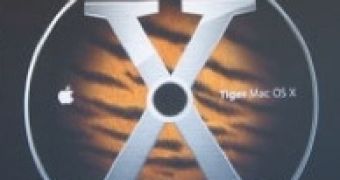The latest word on Windows Vista is the Presentation that Bill Gates made at the CES, where the 'Man of the Year' demonstrated some features that had not been shown before.
David Pogue writes for The New York Times, giving an item by item list of these features and his impressions on them:
■ Transparent window edges. They're cool, sure; but exactly how many times, in your life have you muttered "Darn! If only I could see just the part of the background window that's currently obscured by the 1/3-inch margin of the foreground window"? ■ Widgets. It's a lot like the Dashboard in Mac OS X (or the shareware Konfabulator that came before it), except that apparently, you can't put the widgets anywhere you like on the screen. ■ 3-D application switcher. It's a lot like the Expos? feature in Mac OS X, except that you don't get to see all the windows simultaneously; you have to walk through them each one at a time with the mouse or keyboard. ■ Global, fast search. Vista can now find words in any of your files, quickly and easily, just like the Spotlight feature of Mac OS X. ■ Photo organization. Vista's couldn't look more like Apple's iPhoto program if you ran it through a copying machine.
"If I seem to be laying on the 'stolen from Apple' language a bit thick, you're darned right. Ordinarily, I'm careful about making accusations like this, because I know I'll get hammered by Apple bashers. But in this case, there's not a shred of doubt: most of the features Microsoft demonstrated last night were pure, unadulterated ripoffs from Mac OS X. I could hear actual whispers of recognition from the audience around me", Pogue writes.
"A lot of what we've seen in Vista has similarities with Tiger", said Gartenberg, referring to the operating system on Apple Macintosh computers. "Vista may still impress many consumers, because many of them may have never seen Apple's operating system."
It comes as no surprise to anyone. After all, at the WWDC in June 2004 there were huge posters of the Mac OS X Tiger CD that read "Introducing Longhorn", "This should keep Redmond busy", "Redmond start your photocopiers" and "Redmond we have a problem".
To everyone who used Apple's OS over the years, the similarities in features and options that appear in Windows, years after they have been implemented in the Mac OS are no mere coincidence. Steve Jobs' answer to what he thinks of Longhorn aka Vista could not be any clearer: "They are shamelessly copying us. They can't even copy fast", he said. "Innovation is the only way to win. You just have to stay ahead of people."
Microsoft is finding itself to be less and less in the spotlight while the small fish of yore have grown up and are now breathing down their neck.
"Whatever Microsoft has lacked in flair, it has made up for with a combination of muscle and patience... But now, Microsoft no longer looks as if it can dominate the competition through willpower alone: Google runs the dominant Internet search business, and Yahoo! has a dominant position as an Internet content provider. Apple Computer now dominates the mobile-entertainment-player business and may soon leverage that lead to make a run at the same home-media-player business Microsoft has been trying to crack", Peter Kafka writes for Forbes.
Generally, Microsoft, with its "new" operating system, is losing more and more of its credibility with each passing month and year as it is constantly being postponed and features are often left out. Vista is very important to Microsoft, both in generating income, allowing it to maintain its position, and in conquering new territories.
"There's a lot riding on Vista", said Michael Gartenberg, an analyst at the market research firm Jupiter Research. "Vista must be successful if they want to be an important player in the digital home."
At the end of the day, David Pogue said it best: "Anyway, all of this will be nice to have, if it works and doesn't require us all to buy new computers to run it. But I think that what most people want from the next Windows isn't more stuff added, but rather stuff to be taken away - like crashes, lockups, viruses, error messages and security holes."

 14 DAY TRIAL //
14 DAY TRIAL //